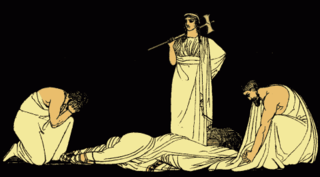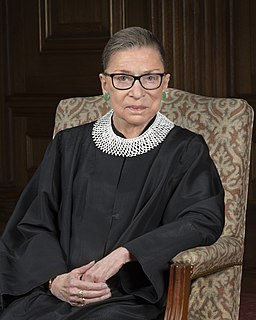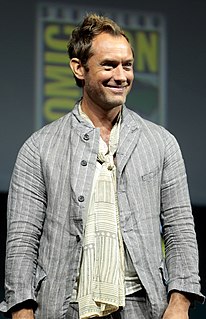See also
| This article about German law is a stub. You can help Wikipedia by expanding it. |
German contract law is found in the Bürgerliches Gesetzbuch, in both the "Allgemeine Teil" and the chapter on "Schuldrecht". It forms part of the general law of obligations.
The Bürgerliches Gesetzbuch, abbreviated BGB, is the civil code of Germany. In development since 1881, it became effective on January 1, 1900, and was considered a massive and groundbreaking project.
| This article about German law is a stub. You can help Wikipedia by expanding it. |

In law, common law is that body of law derived from judicial decisions of courts and similar tribunals. The defining characteristic of “common law” is that it arises as precedent. In cases where the parties disagree on what the law is, a common law court looks to past precedential decisions of relevant courts, and synthesizes the principles of those past cases as applicable to the current facts. If a similar dispute has been resolved in the past, the court is usually bound to follow the reasoning used in the prior decision. If, however, the court finds that the current dispute is fundamentally distinct from all previous cases, and legislative statutes are either silent or ambiguous on the question, judges have the authority and duty to resolve the issue. The court states an opinion that gives reasons for the decision, and those reasons agglomerate with past decisions as precedent to bind future judges and litigants. Common law, as the body of law made by judges, stands in contrast to and on equal footing with statutes which are adopted through the legislative process, and regulations which are promulgated by the executive branch. Stare decisis, the principle that cases should be decided according to consistent principled rules so that similar facts will yield similar results, lies at the heart of all common law systems.

In ordinary language, a crime is an unlawful act punishable by a state or other authority. The term "crime" does not, in modern criminal law, have any simple and universally accepted definition, though statutory definitions have been provided for certain purposes. The most popular view is that crime is a category created by law; in other words, something is a crime if declared as such by the relevant and applicable law. One proposed definition is that a crime or offence is an act harmful not only to some individual but also to a community, society or the state. Such acts are forbidden and punishable by law.

Association football, more commonly known as football or soccer, is a team sport played with a spherical ball between two teams of eleven players. It is played by 250 million players in over 200 countries and dependencies, making it the world's most popular sport. The game is played on a rectangular field called a pitch with a goal at each end. The object of the game is to score by moving the ball beyond the goal line into the opposing goal.
Fair use is a doctrine in the law of the United States that permits limited use of copyrighted material without having to first acquire permission from the copyright holder. Fair use is one of the limitations to copyright intended to balance the interests of copyright holders with the public interest in the wider distribution and use of creative works by allowing as a defense to copyright infringement claims certain limited uses that might otherwise be considered infringement.

Human rights are "the basic rights and freedoms to which all humans are entitled" Examples of rights and freedoms which are often thought of as human rights include civil and political rights, such as the right to life, liberty, and property, freedom of expression, pursuit of happiness and equality before the law; and social, cultural and economic rights, including the right to participate in science and culture, the right to work, and the right to education.
All human beings are born free and equal in dignity and rights. They are endowed with reason and conscience and should act towards one another in a spirit of brotherhood.

Murder is the unlawful killing of another human without justification or valid excuse, especially the unlawful killing of another human being with malice aforethought. This state of mind may, depending upon the jurisdiction, distinguish murder from other forms of unlawful homicide, such as manslaughter. Manslaughter is a killing committed in the absence of malice, brought about by reasonable provocation, or diminished capacity. Involuntary manslaughter, where it is recognized, is a killing that lacks all but the most attenuated guilty intent, recklessness.
Sharia, Islamic law or Sharia law is a religious law forming part of the Islamic tradition. It is derived from the religious precepts of Islam, particularly the Quran and the Hadith. In Arabic, the term sharīʿah refers to God's immutable divine law and is contrasted with fiqh, which refers to its human scholarly interpretations. The manner of its application in modern times has been a subject of dispute between Muslim fundamentalists and modernists.
Newton's laws of motion are three physical laws that, together, laid the foundation for classical mechanics. They describe the relationship between a body and the forces acting upon it, and its motion in response to those forces. More precisely, the first law defines the force qualitatively, the second law offers a quantitative measure of the force, and the third asserts that a single isolated force doesn't exist. These three laws have been expressed in several ways, over nearly three centuries, and can be summarised as follows:

The Juris Doctor degree, also known as the Doctor of Jurisprudence degree, is a graduate-entry professional degree in law and one of several Doctor of Law degrees. The Juris Doctor is earned by completing law school in Australia, Canada, the United States, and some other common law countries. It has the academic standing of a professional doctorate in the United States, a master's degree in Australia, and a second-entry, baccalaureate degree in Canada.

Ruth Bader Ginsburg is an Associate Justice of the Supreme Court of the United States. Ginsburg was appointed by President Bill Clinton and took the oath of office on August 10, 1993. She is the second female justice of four to be confirmed to the court. Following O'Connor's retirement, and until Sotomayor joined the court, Ginsburg was the only female justice on the Supreme Court. During that time, Ginsburg became more forceful with her dissents, which were noted by legal observers and in popular culture. She is generally viewed as belonging to the liberal wing of the court. Ginsburg has authored notable majority opinions, including United States v. Virginia, Olmstead v. L.C., and Friends of the Earth, Inc. v. Laidlaw Environmental Services, Inc.

The Federal Government of the United States is the national government of the United States, a federal republic in North America, composed of 50 states, a federal district, five major self-governing territories, and several island possessions. The federal government is composed of three distinct branches: legislative, executive, and judicial, whose powers are vested by the U.S. Constitution in the Congress, the President, and the federal courts, respectively. The powers and duties of these branches are further defined by acts of congress, including the creation of executive departments and courts inferior to the Supreme Court.

Law & Order: Special Victims Unit is an American crime drama television series created by Dick Wolf for NBC. It stars Christopher Meloni as Elliot Stabler and Mariska Hargitay as Olivia Benson, the lead detectives of the Special Victims Unit in a fictionalized version of the 16th Precinct of the New York City Police Department, until the former left the cast after twelve seasons, unable to come to an agreement on his contract.

David Jude Heyworth Law is an English actor. He has received nominations for two Academy Awards, two Screen Actors Guild Awards, four Golden Globe Awards, and two British Academy Awards (BAFTAs), winning one. In 2007, he received an Honorary César and was named a knight of the Order of Arts and Letters by the French government, in recognition of his contribution to World Cinema Arts.
The Bachelor of Laws is an undergraduate degree in law originating in England and offered in Japan and most common law jurisdictions—except the United States and Canada—as the degree which allows a person to become a lawyer. It historically served this purpose in the U.S. as well, but was phased out in the mid-1960s in favor of the Juris Doctor degree, and Canada followed suit.

International law is the set of rules generally regarded and accepted in relations between nations. It serves as a framework for the practice of stable and organized international relations. International law differs from state-based legal systems in that it is primarily applicable to countries rather than to individual citizens. National law may become international law when treaties permit national jurisdiction to supranational tribunals such as the European Court of Human Rights or the International Criminal Court. Treaties such as the Geneva Conventions may require national law to conform to respective parts.

Law is a system of rules that are created and enforced through social or governmental institutions to regulate behavior. It has been defined both as "the Science of Justice" and "the Art of Justice". Law is a system that regulates and ensures that individuals or a community adhere to the will of the state. State-enforced laws can be made by a collective legislature or by a single legislator, resulting in statutes, by the executive through decrees and regulations, or established by judges through precedent, normally in common law jurisdictions. Private individuals can create legally binding contracts, including arbitration agreements that may elect to accept alternative arbitration to the normal court process. The formation of laws themselves may be influenced by a constitution, written or tacit, and the rights encoded therein. The law shapes politics, economics, history and society in various ways and serves as a mediator of relations between people.
Jim Crow laws were state and local laws that enforced racial segregation in the Southern United States. All were enacted in the late 19th and early 20th centuries by white Democratic-dominated state legislatures after the Reconstruction period. The laws were enforced until 1965. In practice, Jim Crow laws mandated racial segregation in all public facilities in the states of the former Confederate States of America, starting in the 1870s and 1880s, and were upheld in 1896, by the U.S. Supreme Court's "separate but equal" legal doctrine for facilities for African Americans, established with the court's decision in the case of Plessy vs. Ferguson. Moreover, public education had essentially been segregated since its establishment in most of the South, after the Civil War (1861–65).

The rule of law is defined in the Oxford English Dictionary as: "The authority and influence of law in society, especially when viewed as a constraint on individual and institutional behavior; (hence) the principle whereby all members of a society are considered equally subject to publicly disclosed legal codes and processes." The phrase "the rule of law" refers to a political situation, not to any specific legal rule.
This collection of lists of law topics collects the names of topics related to law. Everything related to law, even quite remotely, should be included on the alphabetical list, and on the appropriate topic lists. All links on topical lists should also appear in the main alphabetical listing. The process of creating lists is ongoing – these lists are neither complete nor up-to-date – if you see an article that should be listed but is not, please update the lists accordingly. You may also want to include Wikiproject Law talk page banners on the relevant pages.

Cricket is a bat-and-ball game played between two teams of eleven players on a field at the centre of which is a 20-metre (22-yard) pitch with a wicket at each end, each comprising two bails balanced on three stumps. The batting side scores runs by striking the ball bowled at the wicket with the bat, while the bowling and fielding side tries to prevent this and dismiss each player. Means of dismissal include being bowled, when the ball hits the stumps and dislodges the bails, and by the fielding side catching the ball after it is hit by the bat, but before it hits the ground. When ten players have been dismissed, the innings ends and the teams swap roles. The game is adjudicated by two umpires, aided by a third umpire and match referee in international matches. They communicate with two off-field scorers who record the match's statistical information.